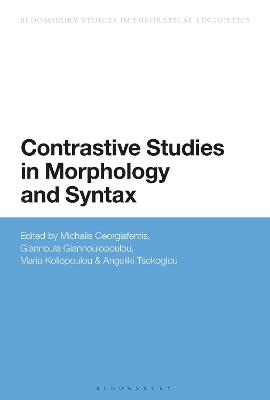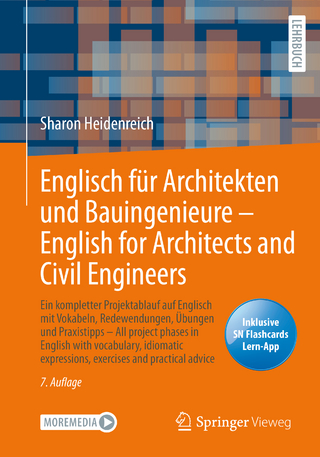
Contrastive Studies in Morphology and Syntax
Bloomsbury Academic (Verlag)
978-1-350-27309-2 (ISBN)
Michalis Georgiafentis is Assistant Professor of Linguistics at the Department of English Language and Literature, National and Kapodistrian University of Athens, Greece. Giannoula Giannoulopoulou is Professor of Linguistics at the Department of Italian Language and Literature, National and Kapodistrian University of Athens, Greece. Maria Koliopoulou is Assistant Professor of Linguistics at the Institute of Translation Studies, University of Innsbruck, Austria. Angeliki Tsokoglou is Associate Professor of Linguistics at the Department of German Language and Literature, National and Kapodistrian University of Athens, Greece.
Preface
Introduction
Part I: Theoretical linguistics from a contrastive point of view
1. Heuristic dimensions of contrastive linguistics, Paul Hopper (Carnegie Mellon University, USA)
2. English as a bridge: an L3-approach to contrastive linguistics, Livio Gaeta (Università di Torino, Italy)
3. 'Verb-first' in proverbs and slogans: a German-based, contrastive view, Torsten Leuschner (Ghent University, Belgium)
Part II: Morphology
4. Gender marking in English and Polish job titles: referring to female physicians, Bozena Cetnarowska (University of Silesia, Poland)
5. Congruence and equivalence in adjective-forming suffixation in Spanish and English: a contrastive study, José Antonio Sánchez Fajardo (University of Alicante, Spain)
6. Linking elements in German compounds: a morphological analysis in comparison with Greek, Maria Koliopoulou (University of Innsbruck, Austria)
7. Compounding in Albanian as a case of ‘structural blending’: evidence from the contrastive analysis of Greek and Albanian, Asimakis Fliatouras (Democritus University of Thrace, Greece)
8. Past tense usages in tense-rich and tenseless languages: a contrastive study, Masahiko Nose (Shiga University, Japan)
Part III: Syntax
9. A contrastive analysis of interrogative constructions in Romance: microvariation and theory, Caterina Donati (Université Paris Diderot - Paris 7, France)
10. Wh-questions at the syntax-discourse interface – German-Swedish contrasts, Valéria Molnár (Lund University, Sweden)
11. Focus types: a cross-linguistic study of clause and information structure, Michalis Georgiafentis (National and Kapodistrian University of Athens, Greece) and Angeliki Tsokoglou (National and Kapodistrian University of Athens, Greece)
12. Strong pronouns as postverbal subjects in Spanish and Italian, Manuel Leonetti (University of Alcalá, Spain) and Victoria Escandell-Vidal (National Distance Education University, Spain)
13. Cliticisation in Greek: A contrastive examination and cross-linguistic remarks, Anthi Revithiadou (Aristotle University of Thessaloniki, Greece) and Vassilios Spyropoulos (National and Kapodistrian University of Athens, Greece)
14. Possible and impossible borrowings in Asia Minor: towards a formal model of syntactic transfer under contact, Dimitris Michelioudakis (University of York, UK) and Ioanna Sitaridou (University of Cambridge, UK)
15. Goal prevalence and situation types: An empirical analysis of differences in Greek and German motion event descriptions, Thanasis Georgakopoulos (Université de Liège, Belgium) and Holden Härtl (University of Kassel, Germany)
Index
| Erscheinungsdatum | 06.09.2021 |
|---|---|
| Reihe/Serie | Bloomsbury Studies in Theoretical Linguistics |
| Verlagsort | London |
| Sprache | englisch |
| Maße | 156 x 234 mm |
| Gewicht | 440 g |
| Themenwelt | Geisteswissenschaften ► Sprach- / Literaturwissenschaft ► Sprachwissenschaft |
| ISBN-10 | 1-350-27309-0 / 1350273090 |
| ISBN-13 | 978-1-350-27309-2 / 9781350273092 |
| Zustand | Neuware |
| Haben Sie eine Frage zum Produkt? |
aus dem Bereich


